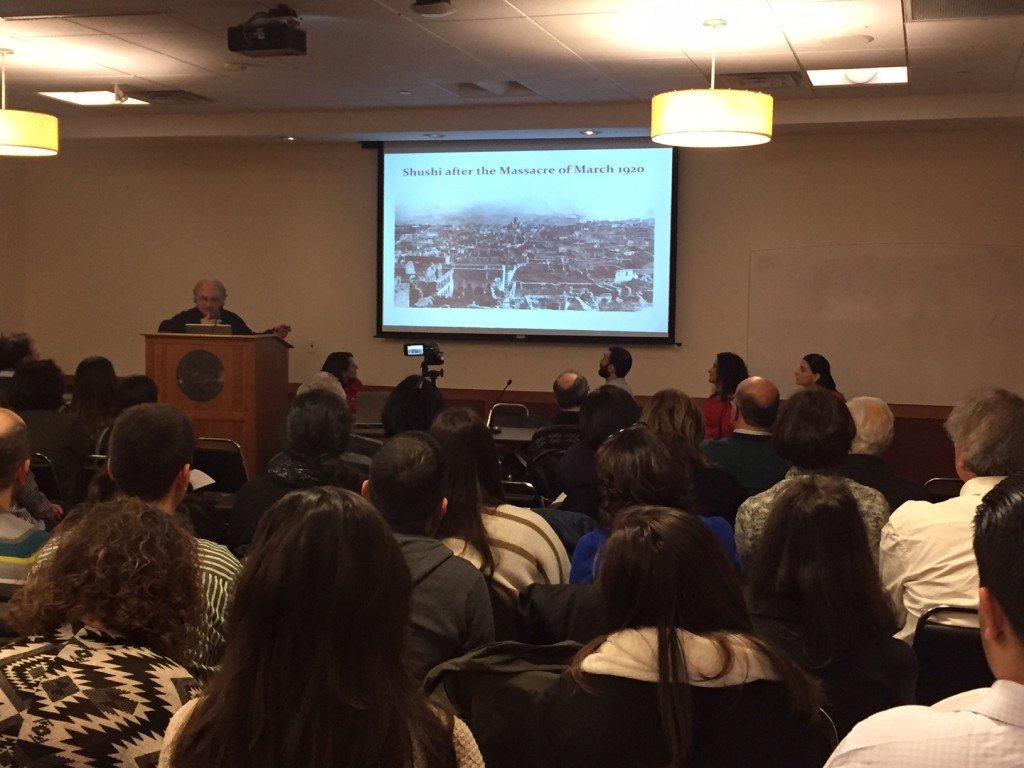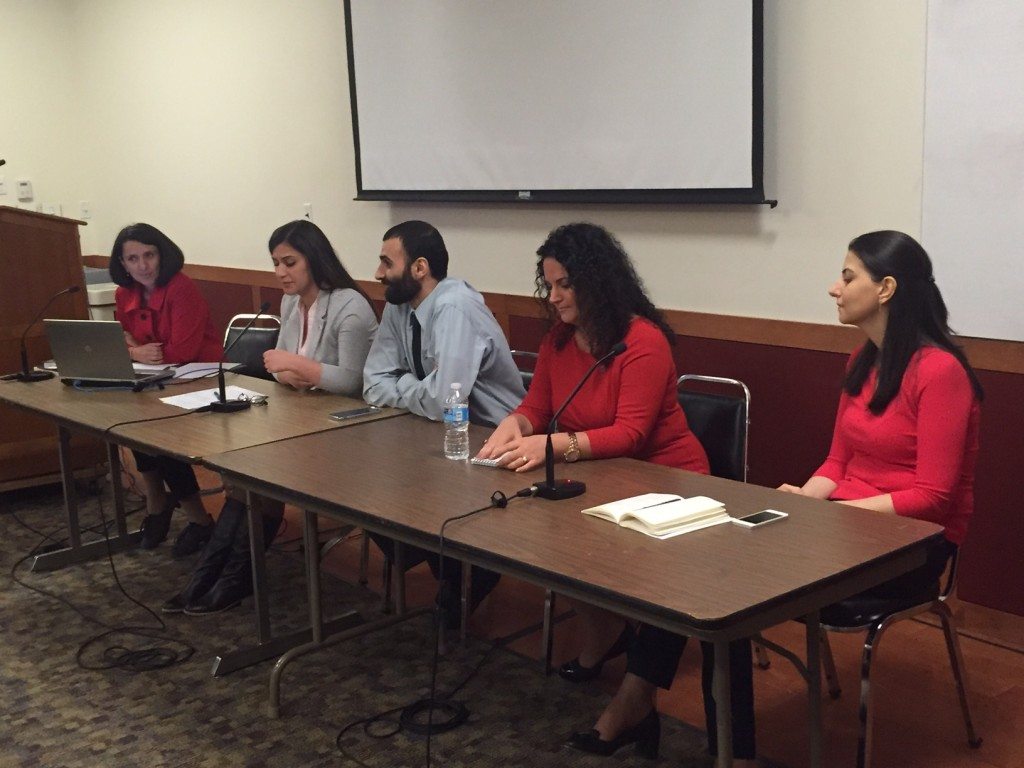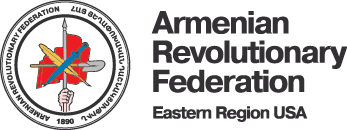Panel at Northeastern Discusses Artsakh’s Past, Present, and Future

BOSTON, Mass.—A panel discussion entitled, “Nagorno-Karabagh (Artsakh): Past, Present, and Future,” took place at Northeastern University on Feb. 12. Organized by the National Association for Armenian Studies and Research (NAASR) and co-sponsored by the Northeastern Armenian Students Association (ASA), the event featured a historical background of the region as well as a panel discussion that explored the challenges faced by Nagorno-Karabagh more than two decades after the ceasefire with Azerbaijan.

Dr. Payaslian spoke briefly about the history of the Karabagh region, with a particular focus on its history since the creation of the Soviet Union until the beginning of the Karabagh War.
Ani Semerjian of the Northeastern ASA welcomed NAASR Director of Academic Affairs Marc Mamigonian, who offered the opening remarks. Northeastern University President Joseph Aoun also welcomed the audience to the university through a video message, during which he touched upon his memories of the Armenian community of Lebanon and his appreciation of the Armenian-American community’s commitment to their history and culture.
Mamigonian then welcomed Dr. Simon Payaslian, the Charles K. and Elisabeth M. Kenosian Chair in Modern Armenian History and Literature at Boston University, who provided an historical introduction to the discussion. Payaslian spoke briefly about the history of the Karabagh region, with a particular focus on its history since the creation of the Soviet Union until the beginning of the Karabagh War.

The panel panel discussion featured Konstantin Grigoryan, Armine Mosiyan, Anna Astvatsaturian Turcotte, and Olya Yordanyan and was moderated by Dr. Anna Ohanyan.
Mamigonian then invited Dr. Anna Ohanyan, the Richard B. Finnegan Distinguished Professor of Political Science and International Relations at Stonehill College, to moderate the panel discussion featuring Konstantin Grigoryan, Armine Mosiyan, Anna Astvatsaturian Turcotte, and Olya Yordanyan. The panelists discussed their personal stories—which included accounts of the war and as refugees—as well as several issues facing Nagorno-Karabagh today, including the ongoing border aggression by Azeri forces, international recognition of the Nagorno-Karabagh Republic, the social, economic, and educational challenges there, as well as the prospects of ending the ongoing conflict in the region.
Source: Armenian Weekly New England
